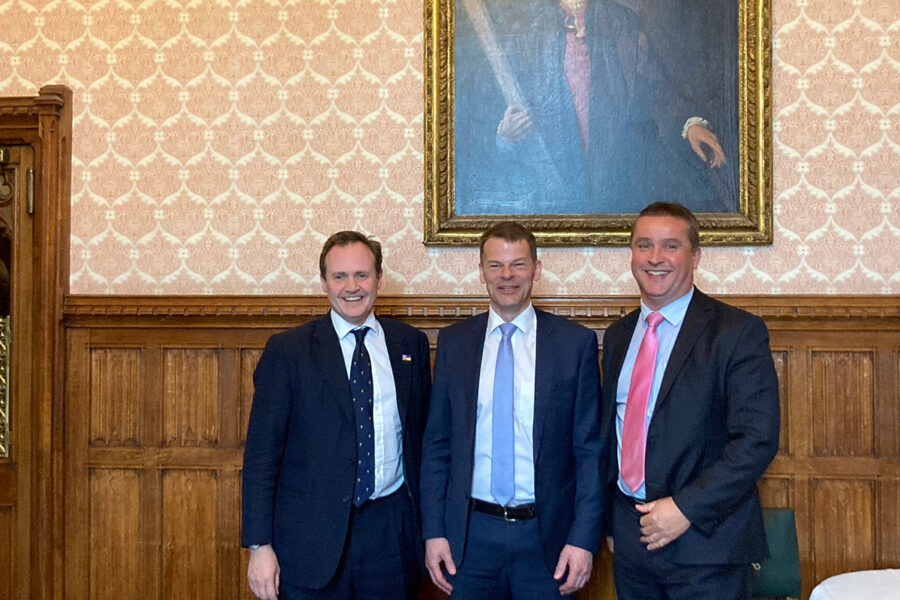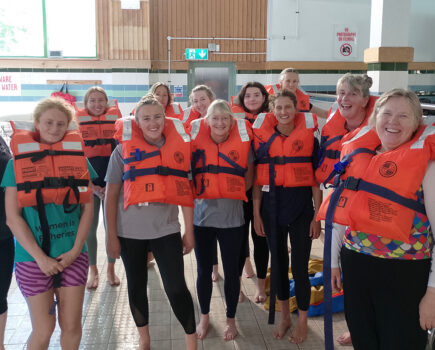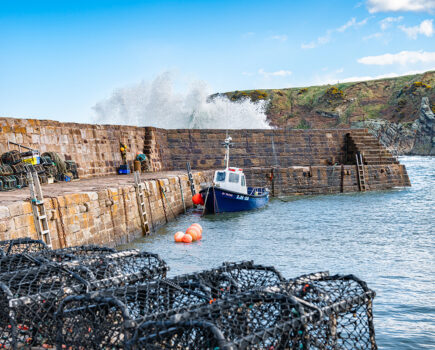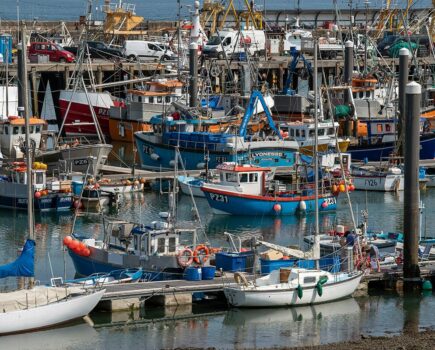The Faroe Islands government held a series of one to one political meetings in Westminster last week, as well as wider political meetings, against the backdrop of growing public concern about Faroese support for Russian fishing interests, reports Andy Read.
This is alongside the groundswell of objections to the annual Grind, the traditional hunt for cetaceans, which were once an important source of food for the islands’ inhabitants.
The meetings included one between Faroe prime minister Bárður á Steig Nielsen and Michael Gove, in his role as minister for intergovernmental relations, and another between Faroese minister of foreign affairs and culture Jenis av Rana and his UK counterpart James Cleverley, minister for North America and Europe in the FCDO.
As Fishing News went to press, ministers on both sides were tight-lipped about any substantive progress, restricting themselves to comment about ‘discussions’. A statement by the Faroe government from Jenis av Rana said only that Faroe ‘joined in condemning Russia for its illegal war against Ukraine and agreed on the importance of measures aimed at compelling Russia to withdraw its armed forces from Ukraine’.
It said that the ministers ‘discussed the presence of Russian fishing vessels in the Special Area along the UK-Faroese border, as well as new legislation making its way through the Faroese parliament – Løgtingið – designed to give the government the necessary powers to implement targeted sanctions against Russia’. “They also agreed that measures are necessary, and on the importance of continuing a close dialogue.”
The Faroese PM moved on to attend a meeting of the All Party Parliamentary Group (APPG) for the Faroe Islands.
A government spokesperson from within Defra confirmed that fisheries minister Victoria Prentis had not attended the APPG meeting, but had previously met with her counterpart in the Faroe government, fisheries minister Árni Skaale, where she had expressed her strong views about the situation.
The spokesperson added: “The Faroe Islands must take a tougher stance on this. Allowing Russian vessels access to an area worth around £16m in the midst of the horrors we are seeing in Ukraine is simply wrong.
“We, alongside our allies and partners, have taken urgent action to maximise damage to Putin’s war machine and degrade the Russian economy for years to come. We will categorically not license any Russian-flagged vessels to fish anywhere in UK waters, and we will continue to urge the Faroes to follow our lead, ban these vessels, and do what is ultimately the right thing to do.”
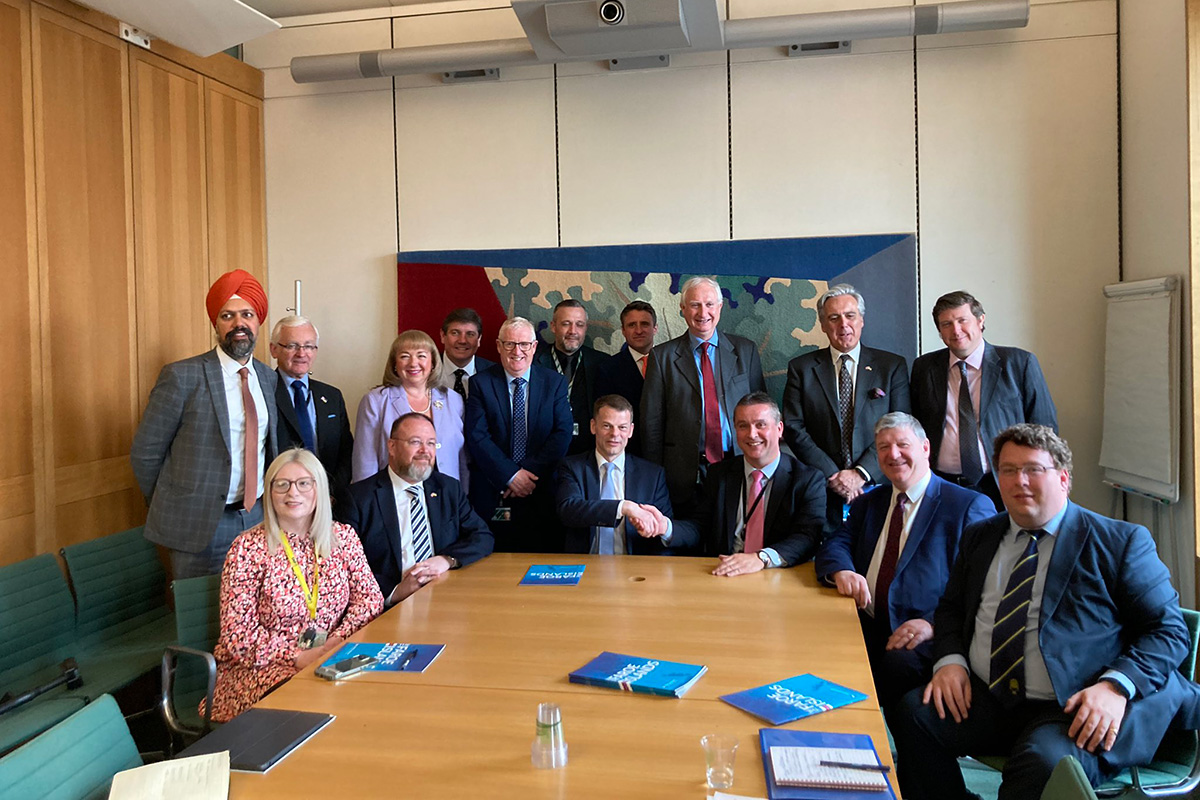
MPs attending the Faroe Islands APPG included the PM’s fisheries envoy David Duguid and shadow fisheries spokesperson Daniel Zeichner.
Scottish MP David Duguid, recently appointed as the prime minister’s ‘fisheries envoy’, did attend the meeting of the Faroe Islands APPG, which was chaired by SNP MP Angus MacNeil, but in his role as MP rather than fisheries envoy, emphasising that on this visit, fisheries issues themselves were low on the agenda. Ahead of the meeting, he put out a statement confirming his own concerns about Faroese licensing of Russian vessels.
After the meeting, he told Fishing News: “During our meeting, the prime minister of the Faroe Islands rightly condemned Putin and committed to exploring the same sanctions as the UK by banning Russian vessels from our waters. Throughout our discussion, he admitted that it’s going to be difficult for the Faroes to continue with their current arrangement with Russia.
“While I’m content with him saying this, it was made clear to him that warm words were not enough, and we needed to see action from the Faroes now, not later. Allowing Russian vessels access to an area worth around £16m in the midst of the horrors we are seeing in Ukraine is not acceptable.
“The Faroes want to maintain a working relationship with the UK; however, this issue is causing a major problem for us. I reiterated to prime minister Nielsen that the UK will categorically not license any Russian-flagged vessels to fish anywhere in UK waters.
“It’s important we have productive dialogue with the Faroe Islands as a fellow coastal state, and I will continue to monitor their position.”
Daniel Zeichner, the Labour shadow fisheries spokesman, attended the APPG meeting and told Fishing News afterwards: “The meeting with the prime minister was constructive and positive, with cross-party condemnation of Russia’s actions and a demand that the Faroes address the issues with Russian trawlers continuing to fish in the shared area.
“His response, that the annual agreement with Russia might not be continued, is a step forward, but swifter and stronger action is required.”
The Killybegs Fishermen’s Organisation also issued a statement, urging the Irish government and the European Commission to become involved in the blue whiting quota issue.
CEO Seán O’Donoghue said: “What is most galling about this is that the Faroese are not just facilitating the access of the Russian boats, but they are also using their excessive blue whiting quota as a trade-off to ‘print currency’ or purchase cod quota from Russia.
“It flies in the face of sanctions which have been agreed against the Russians by the EU, and while the Faroes have a degree of autonomy on fisheries, they form part of the Kingdom of Denmark and do not have independence on critical issues such as military strategy.
“It is paramount that our government does everything in its power to compel the European Commission to nip this issue in the bud. Quite apart from the disregard to stocks and scientific advice, we are all acutely aware that any profits accrued to Russian businesses are indirectly funding the catastrophic war effort in Ukraine.”
The European Association of POs also added its voice to the growing condemnation of the Faroese, saying: “EAPO welcomes the tough stance that the UK government and the Scottish pelagic industry have taken on these developments, and we call on the European Commission to also address this issue in the strongest possible terms with the Faroe Islands.
“The Faroese actions are extremely ill-advised and, if not revoked, should have bearing on the EU-Faroese fisheries relationship.”
Fishing News made contact with the Representation of the Faroe Islands in London – the closest the Faroes come to having a formal embassy in the UK – to ask for comment from the Faroe government delegation. It was only able to say that the request for comment had been passed on to the delegation.
This story was taken from the latest issue of Fishing News. For more up-to-date and in-depth reports on the UK and Irish commercial fishing sector, subscribe to Fishing News here or buy the latest single issue for just £3.30 here.

